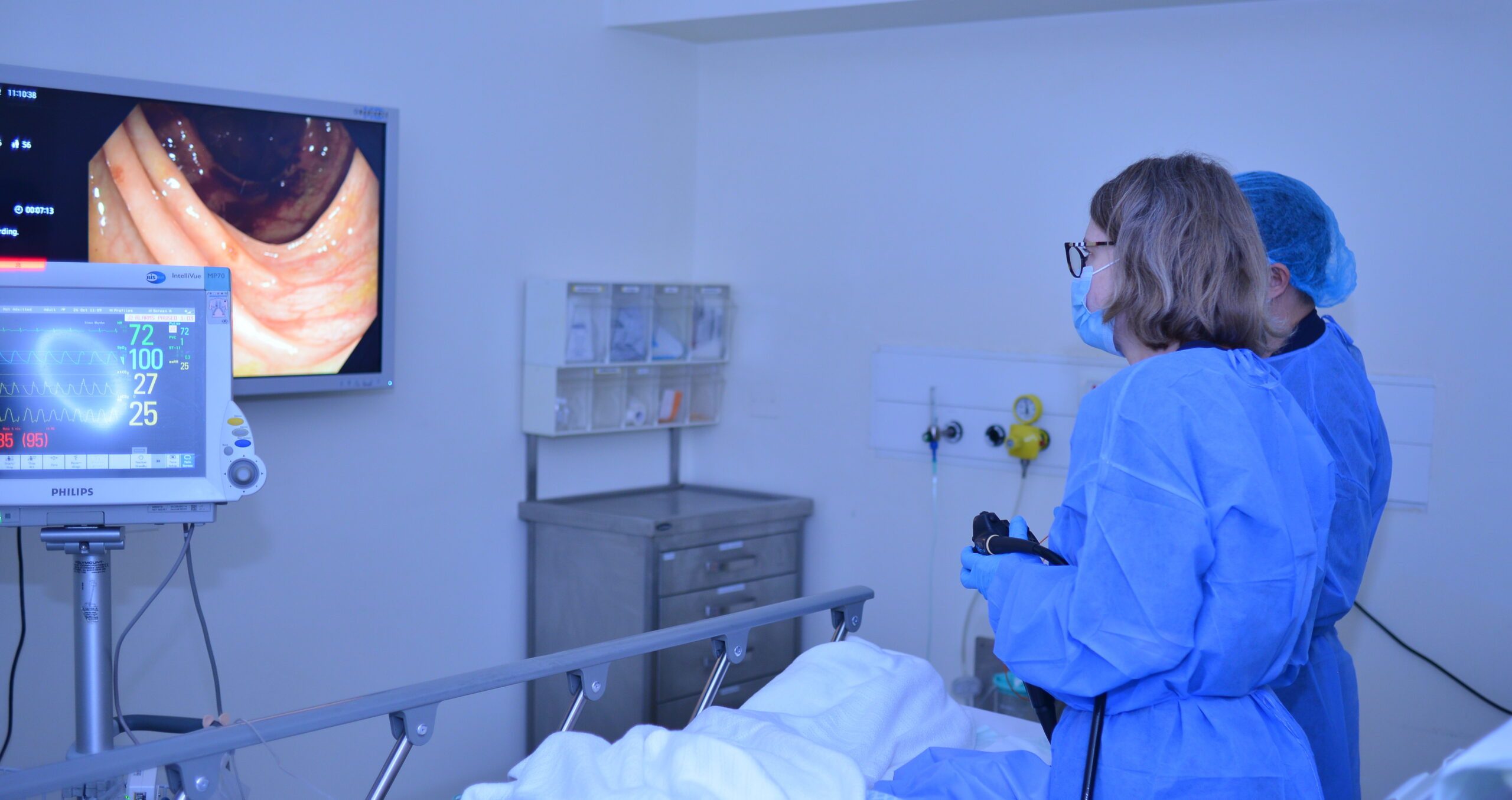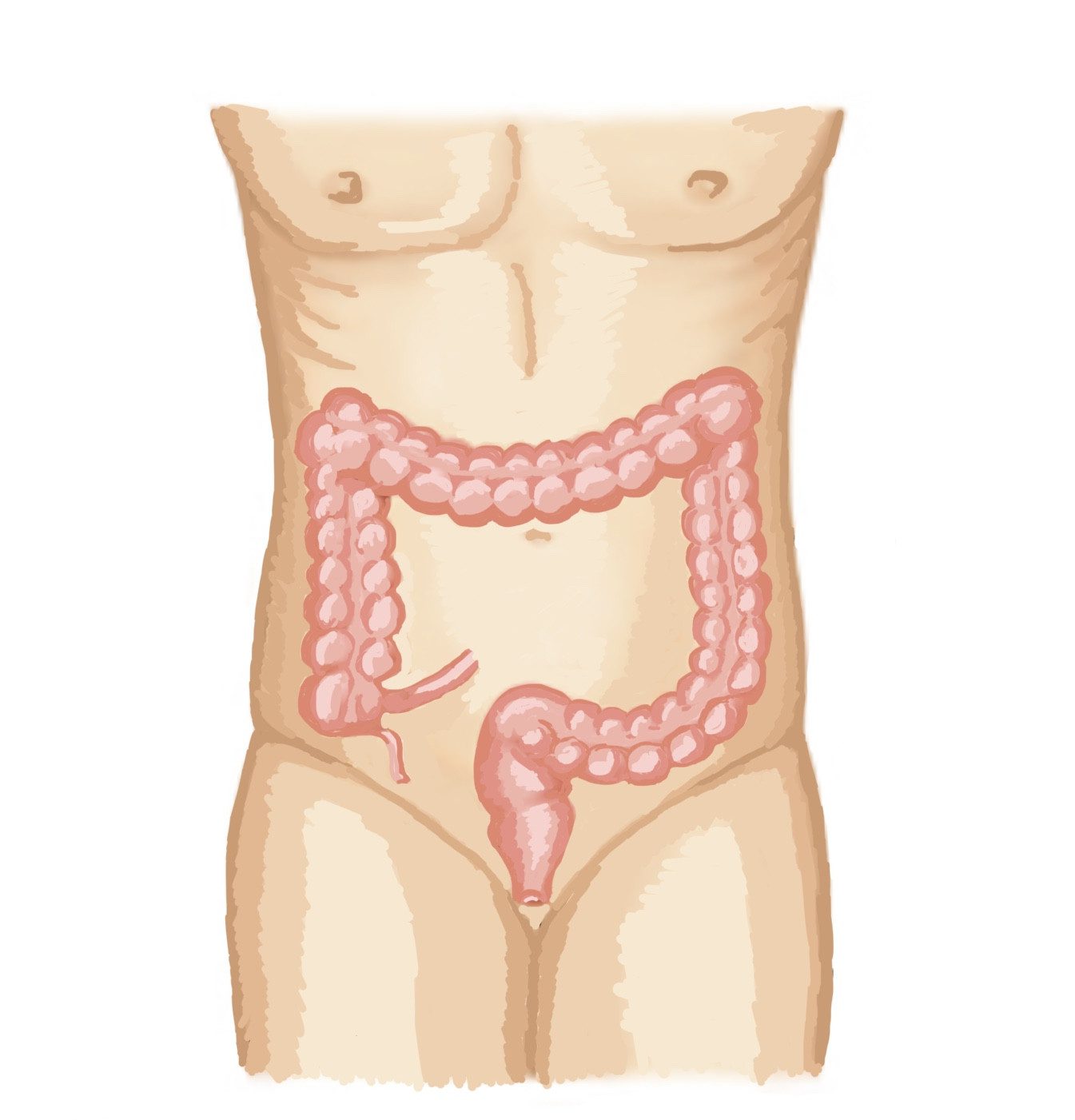Colonoscopy is a camera test of the colon. Precisely the rectum, colon and most of the time the end of the terminal ileum as well, done with a long flexible endoscope. With colonoscopy we can diagnose or exclude inflammation, ulcers, polyps and benign or malignant tumors of the colon and rectum. Biopsies are routinely taken from the lining to check for microscopic changes. Colonoscopy also allows for treatment: polyps can be removed; bleeding lesions can be treated.
What to expect when going for this procedure?
Since the colon tends to contain a mixture of liquid and solids, there is a need for a bowel preparation to allow your doctor to see the lining inside your colon properly. Bowel preparation is a thorough washout of the bowel via orally taken laxative medicines. This will be prescribed by your doctor and how to take it, will be explained to you in details by her or by your nurse, well before the procedure.
The test takes 20-40 minutes, but you will not be able to attend to your commitments the evening before, because of the bowel preparation, and for the whole day on the day of the procedure because of the sedative medicines.
The test would be uncomfortable fully awake; therefore, sedation is suggested, and you are offered to choose between deep sedation or conscious sedation.
After the colonoscopy, you are observed at the day care unit for a few hours, then, once you fully recovered, you can go home. Your doctor will give you your report and explain you the findings right after the procedure, but the result of the histopathological examination of the biopsies takes 5-14 days. To discuss the result of the histopathology and to plan your further management, a free follow-up is arranged for you in about 2 weeks.

